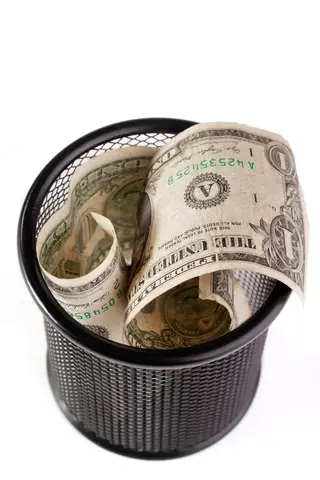 CNBC had an article on this topic geared to consumers. This prompted me to consider the same topic for small business owners. Because I know how hard small business owners work, I believe strongly in frugality.
CNBC had an article on this topic geared to consumers. This prompted me to consider the same topic for small business owners. Because I know how hard small business owners work, I believe strongly in frugality.
Here are some of the ways you can stop wasting money:
- Tax penalties
Being late for filing returns and paying taxes without having reasonable cause triggers various tax penalties. Several years ago it was reported that about 40% of small businesses paid an average payroll tax penalty of $845. I couldn’t find the original source of this statistic, but any unnecessary fees are just too much for your business. These penalties mount up until the action is concluded (e.g., the return is filed). What’s more the penalties are not deductible.
Better option: Make sure your tax advisor prompts you to timely act or handles matters for you.
- Bank fees
Are you being charged for everything you do in your business bank account? It’s time to reexamine your account so you can make decisions that will stop wasting money on fees. For example, you may be able to obtain free checking by maintaining a set average monthly balance.
Better option: If you’re thinking of changing your bank, look for one that offers free or low-cost services to small business owners. FitSmallBusiness lists the best small business checking accounts.
- Subscriptions
Many subscriptions renew automatically, but if you don’t utilize them, what’s the point? Do you really need to pay for newspapers in print? Review your subscriptions and cancel those you don’t need.
Better option: See what free options are available online to provide the information you previously read in paid materials.
- Telephone plans
Do you provide smartphones and tablets to your staff? You may be paying for plans that you don’t fully need. Review your plans so you can cut back.
Better option: See if switching to a different carrier can save you money.
- Marketing
Marketing through traditional and social media isn’t useless, but what and how you are spending your marketing dollars may be useless. Unless you track your results, you may be wasting money.
Better option: Set a realistic marketing budget, decide where to apply your dollars, and review your results at least quarterly. Then you can reassess whether it pays to be spending this money and which venues produce the best bang for your bucks. For example, a customer referral campaign may cost little or nothing but generate the desired result as compared with a costly print ad or radio spot.
Final thought
If you have given some thought to this subject and found other ways to trim your expenditures, please share them. Send your ideas to me (barbara at barbaraweltman dot com) and I’ll share them with my readers.


